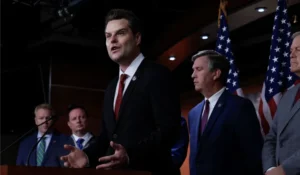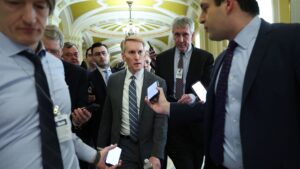Why We Should Care About the French Election
On May 7, 2017, France elected Emmanuel Macron, a centrist candidate, over far-right candidate Marine Le Pen. This election, however, was a very different election than any other in recent memory. Since the 1950s France has been led either by the socialist party or the center-right party, but with the previous socialist president having an approval rating of just 4% in November, and the center-right candidate, Francois Fillon, under investigation for misusing public funds, France chose two political outsiders.
Emmanuel Marcon founded his own center-right party, En Marche! (On the Move!), in April of last year and the party has never been put on a ballot until this election, while Marine Le Pen is part of the National Front party which is mostly shunned by the political mainstream.
Frustrated with a slow economy with 10% unemployment, Le Pen’s supporters were anti-globalist who want France to leave the E.U., much like Donald Trump’s America first policy. They also want to stop immigration to prevent terrorist attacks like the ones in Paris that occurred last year, and to ban the wearing of any religious symbols in public such as Muslim headscarves or Jewish yarmulkes.
Sophia Vespoli, a freshman at Hills West agrees that “the French should have prioritized national security, and the easiest way to prevent terrorism is to stop immigration from countries that are known to have terrorist organizations.”
Although the National Front has a lot of support, Le Pen has faced many challenges. When her father founded the party many people saw it as too radical, anti-Semitic, homophobic and racist. To combat this she made the party more appealing to younger voters by rejecting her father’s statements about homophobia and anti-Semitism and has raised the National Front’s approval rating for 18-24-year-old voters from 15% to 40%, but it was not enough.
The problems within the National Front left many people to vote for Marcon. Marcon is pro- E.U. and wants to strengthen ties within the eurozone. He wants to cut the deficit and corporate taxes to try and stimulate the economy.
Emily Kowalski agrees that “staying in the E.U.is a smart way to help stimulate the economy, and stopping immigration from Muslim majority countries is counter-intuitive because it will cause more refugees to turn to terrorist organizations for food and shelter.”
Marcon is very personable, but he has been quite vague on the details of what he plans to do in office. His campaign is very reminiscent of Barack Obama’s 2008 campaign slogan “Change we can believe in.” Like Obama was, Marcon is a young, new politician who wants to stimulate the economy in a time of recession.
Mr. Thidemann, when asked about the consequences of the French election brought up a good point that “although Marcon is definitely more liberal than Le Pen, Marcon is known for being pro-business and anti-union.” He is more fiscally conservative than the socialist party, and will probably help businesses more than the people, but since the only other alternative was Le Pen, he received most. if not all. of the socialist parties votes.
This election has stopped a streak of populism winning against globalism that started with Brexit and the election of Donald Trump. The Netherlands let up only 5 seats to their far right party and now with Le Pen’s loss, the far right has lost momentum.
The major takeaway from recent elections around the world is that people are desperate for change. With the refugee crisis, the rise in terrorism, and stagnant wages worldwide. people want to overthrow the political establishment and take risks in order to fix problems that have now existed for a decade.








